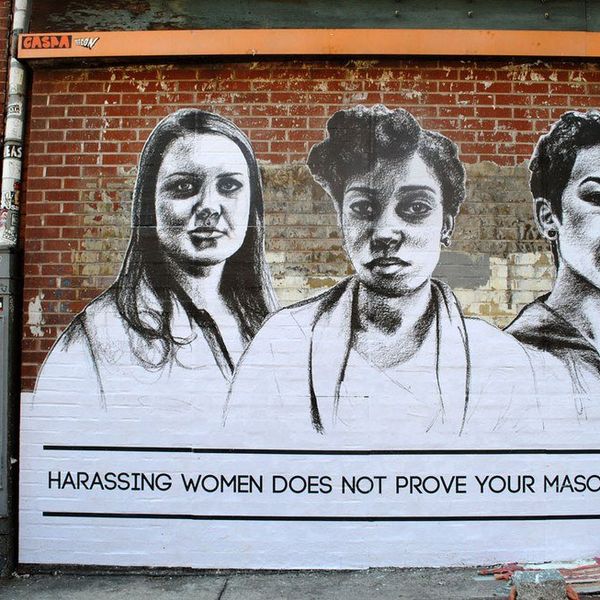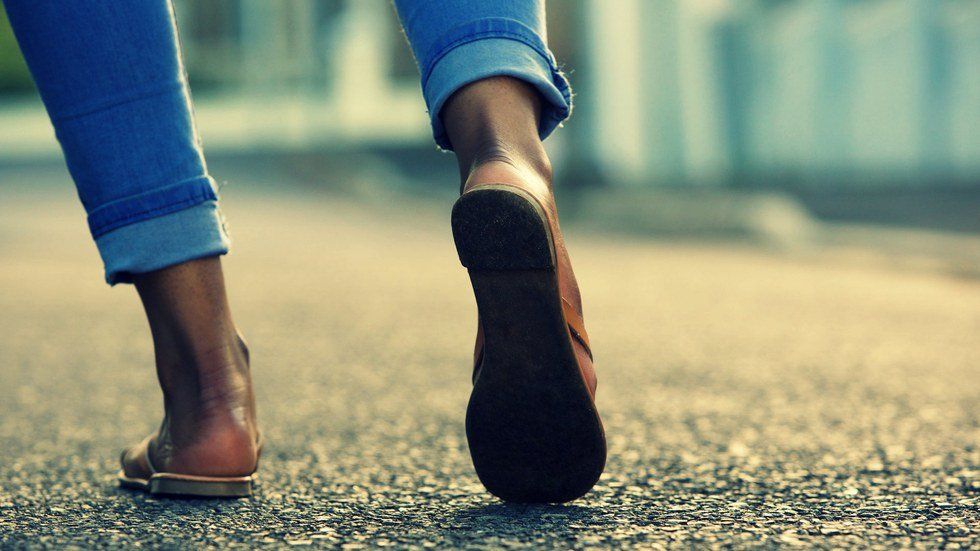When I was a little girl, my best friend lived right down the block from me. A mere 8 houses away from my own.
Looking back, it made sense that my parents were worried about me walking that distance by myself. They'd stand on our porch and watch me as I walked. As I got older, however, I noticed that this apparently wasn't limited to my youth.
As a 20 year old adult, my mother still worries when she hears I have to walk anywhere by myself. I live in an apartment with friends, and commute to my school. Because of this, I have to walk a block and a half to my bus stop. A block and a half. What's worse? Her worry is justified.
In 2014, a study was done by Stop Street Harassment (SSH), who, according to their website, are "a nonprofit organization dedicated to documenting and ending gender-based street harassment worldwide".
Out of the 2,000 surveyed, it was found that 65 percent of the women had experienced street harassment, with 23 percent being sexually touched, 20 percent being followed and nine percent forced to do something sexual.
The numbers are staggering, but not surprising.
Just a few seconds ago, as I was literally writing this, my roommate posted a status on Facebook describing an incident from earlier today.
In the incident, she describes an older man stopping her and asking her to take her headphones out. The man then proceeded to ask how old she is. My roommate, who is 20, knows from experience to answer this question with "17."
Horrifyingly, this is due to a large number of older men asking her age. She gives 17 to insinuate that she's still a minor, which generally turns them away from her.
Not today.
He continued to bother her, asking when she turns 18 and if she had a boyfriend, finishing with asking for her phone number so he can call her after her birthday.
Think about that.
An adult man just found, to his knowledge, a 17 year old girl on the street, walking by herself, in broad daylight, and decided to ask her for her phone number. Even after she responded "yes" to the boyfriend question.
I could write a book about why this entire interaction was wrong. I could write an entire series on why it's wrong that she, and women everywhere, are used to it.
Ask any woman in your life, there's a 65 percent chance they'll have a similar story, myself included.
I envy my male friends who walk freely, without worry.
I know I keep asking this of you, but think about that.
No.
Really think about it.
I envy men... for being able to walk somewhere.
Something I can't do without an underlying fear of some sinister event to take place.
Even more, women who are poor or homeless (who are disproportionately women of color) are more likely to experience frequent street harassment due to the fact that they spend considerably more time in the street and on public transportation.
That's just cisgendered women. According to a survey done in 2015 by the U.S. Transgender Survey (USTS), 46 percent of trans people experienced verbal harassment in the past year.
A national survey, also conducted by SSH, revealed that men who identify as LGBT are 20 percent more likely to experience verbal harassment than straight, cisgendered men.
Another survey done in the San Francisco Bay Area found that "68 percent of women of color report experiencing street harassment often or every day compared with 55 percent of white women".
Overwhelmingly, women, women of color, poor women, LGBT men and women and trans individuals feel unsafe on the street.
"So who does feel safe?" You ask.
That's a good question, because that covers millions of people. Over half the country, actually.
"What's the purpose of street harassment?"
Well, dear reader, it's simple -- power. It's the power to control the environment and make public places feel unsafe and dangerous.
"Why does it matter?" Wow you have a lot of questions.
Street harassment affects women's ability to complete simple tasks like errands, and even just going somewhere in public. It limits our peace of mind and our mobility. Want to hear something even creepier? Young girls getting catcalled is considered by our society a sign of their transition from being a girl to a woman. My other roommate got catcalled when we were in seventh grade. It was hot out and she was wearing a tank top. We were 12.
"Well, what can we do to stop it?"
During International Anti-Street Harassment Week (March 18-24), the Huffington Post wrote an article titled "10 Things You Can Do To Stop Street Harassment". The list contained things such as: raising awareness through social media, educate and engage your community, talk to men friends about why being a bystander to street harassment perpetuates the idea that it's O.K. and most importantly -- talk to your sons and daughters.
They are the future of America. You have the power to change the face of this country. Use it.





















